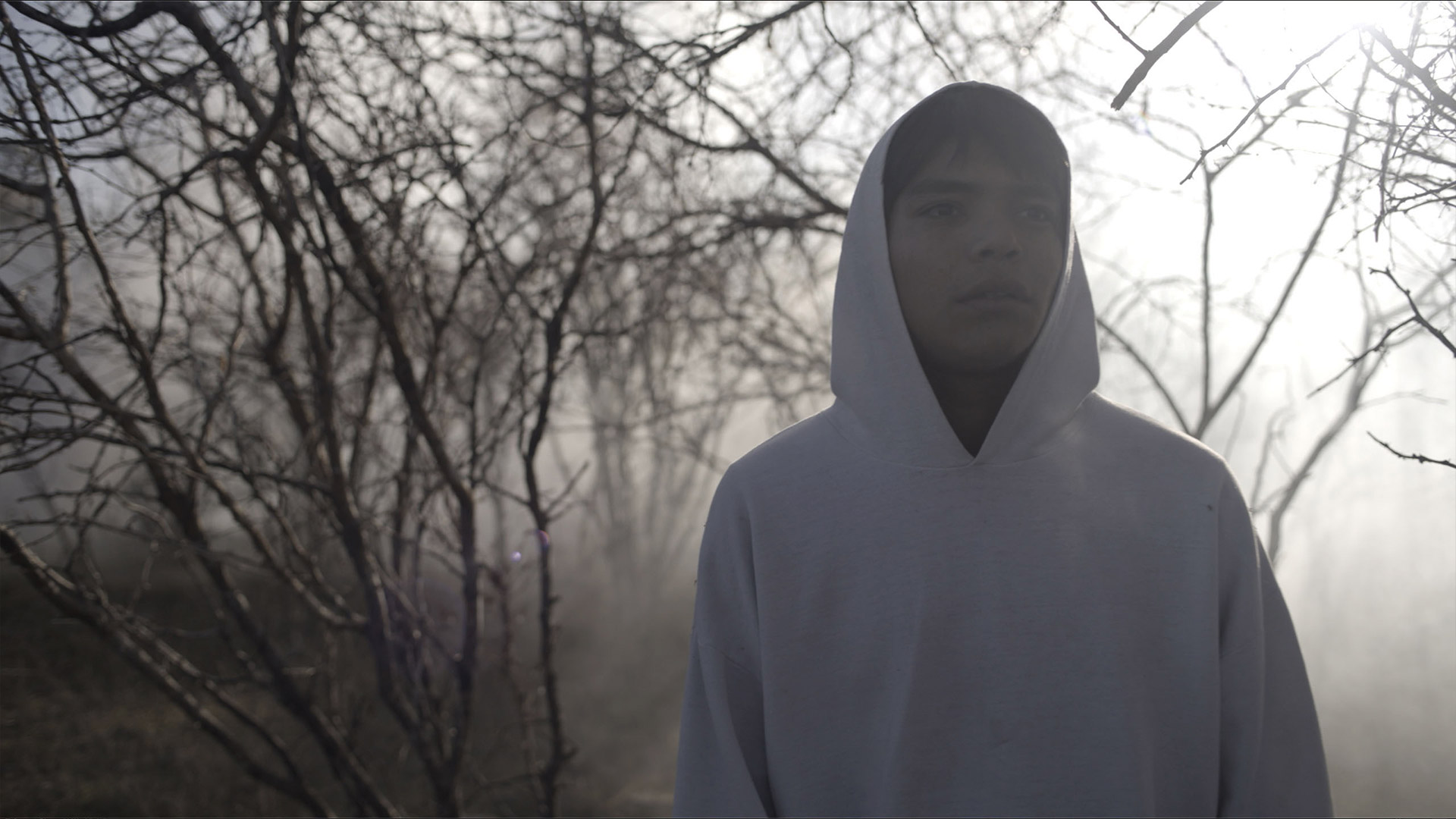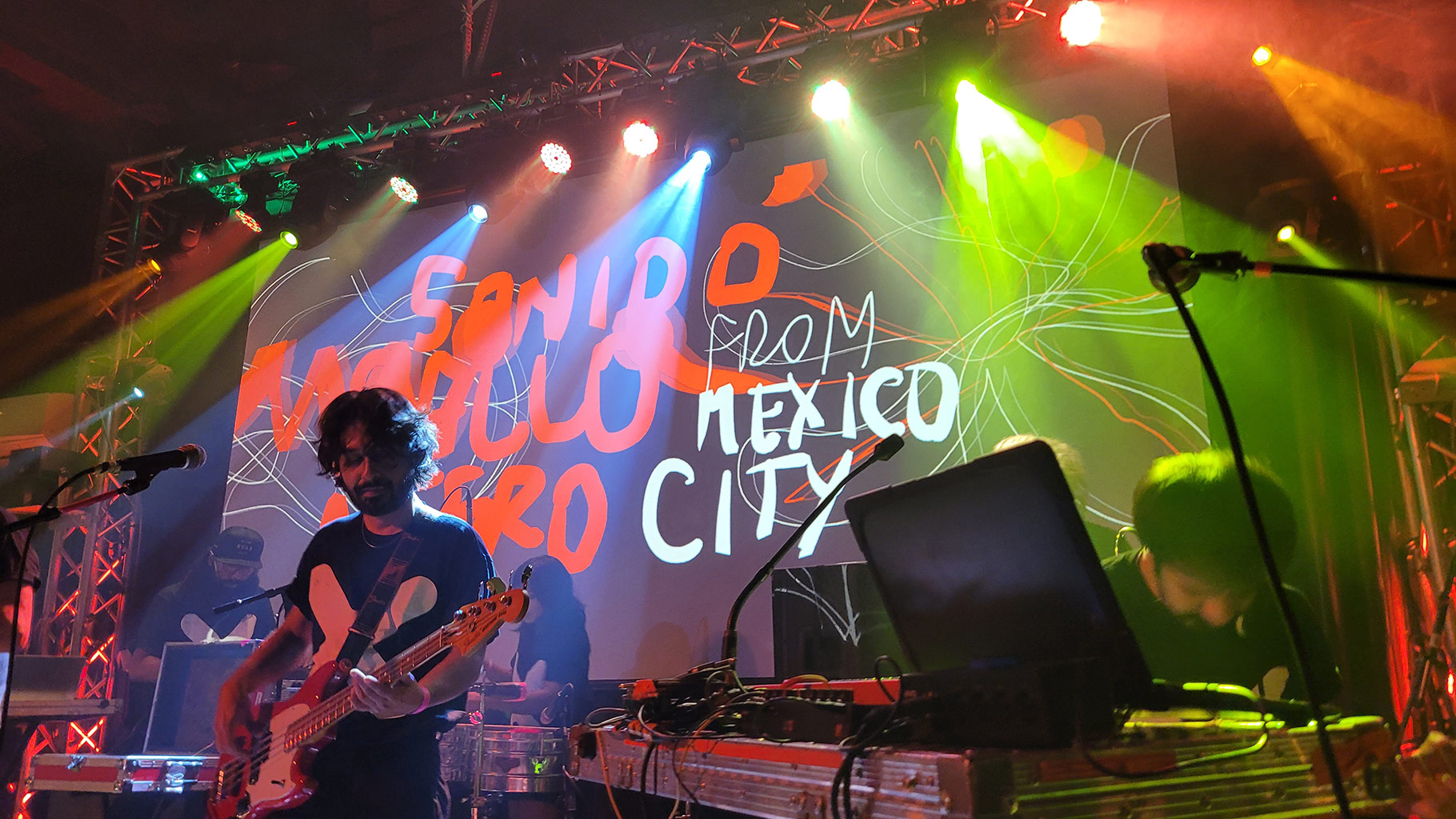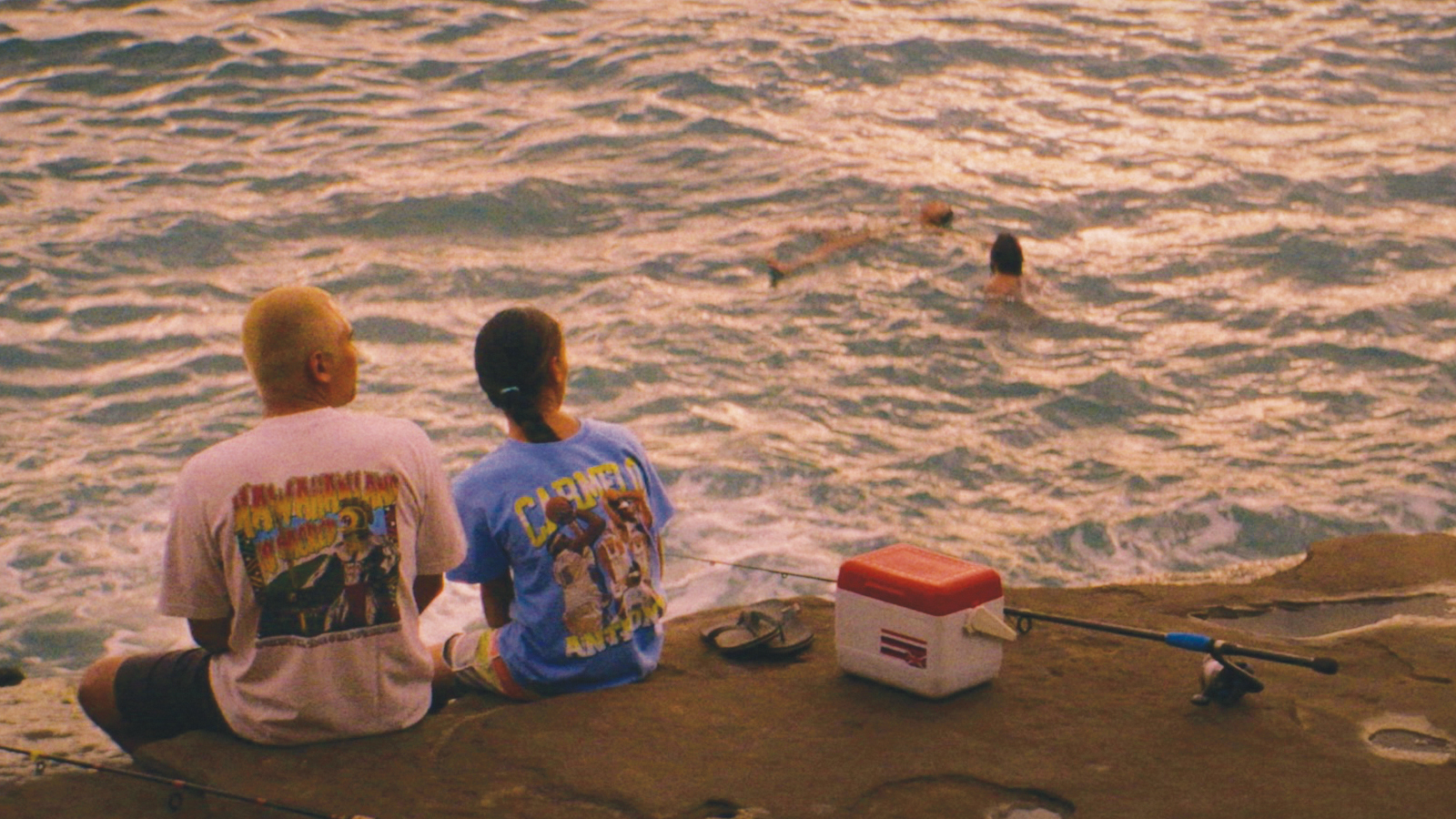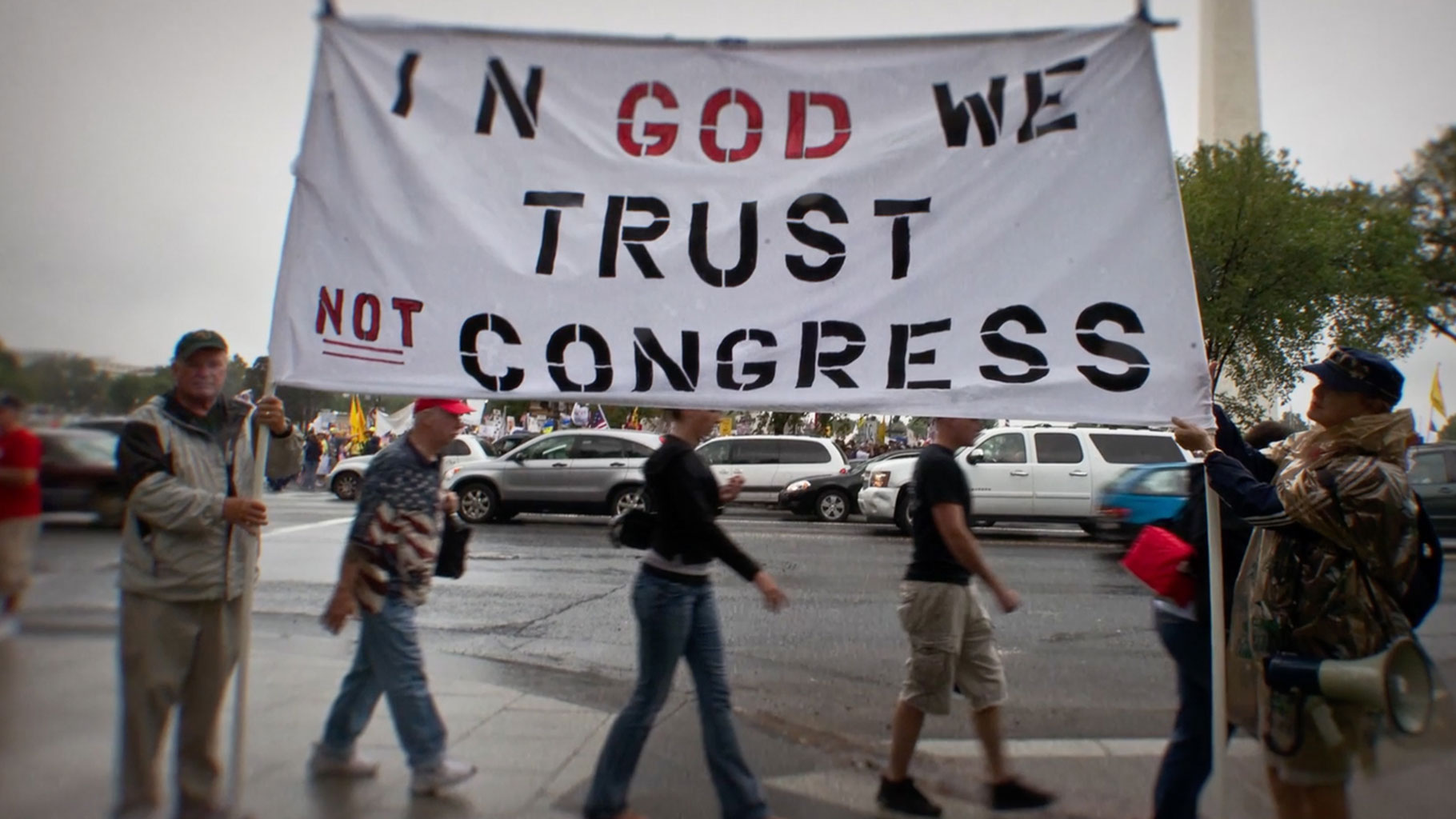
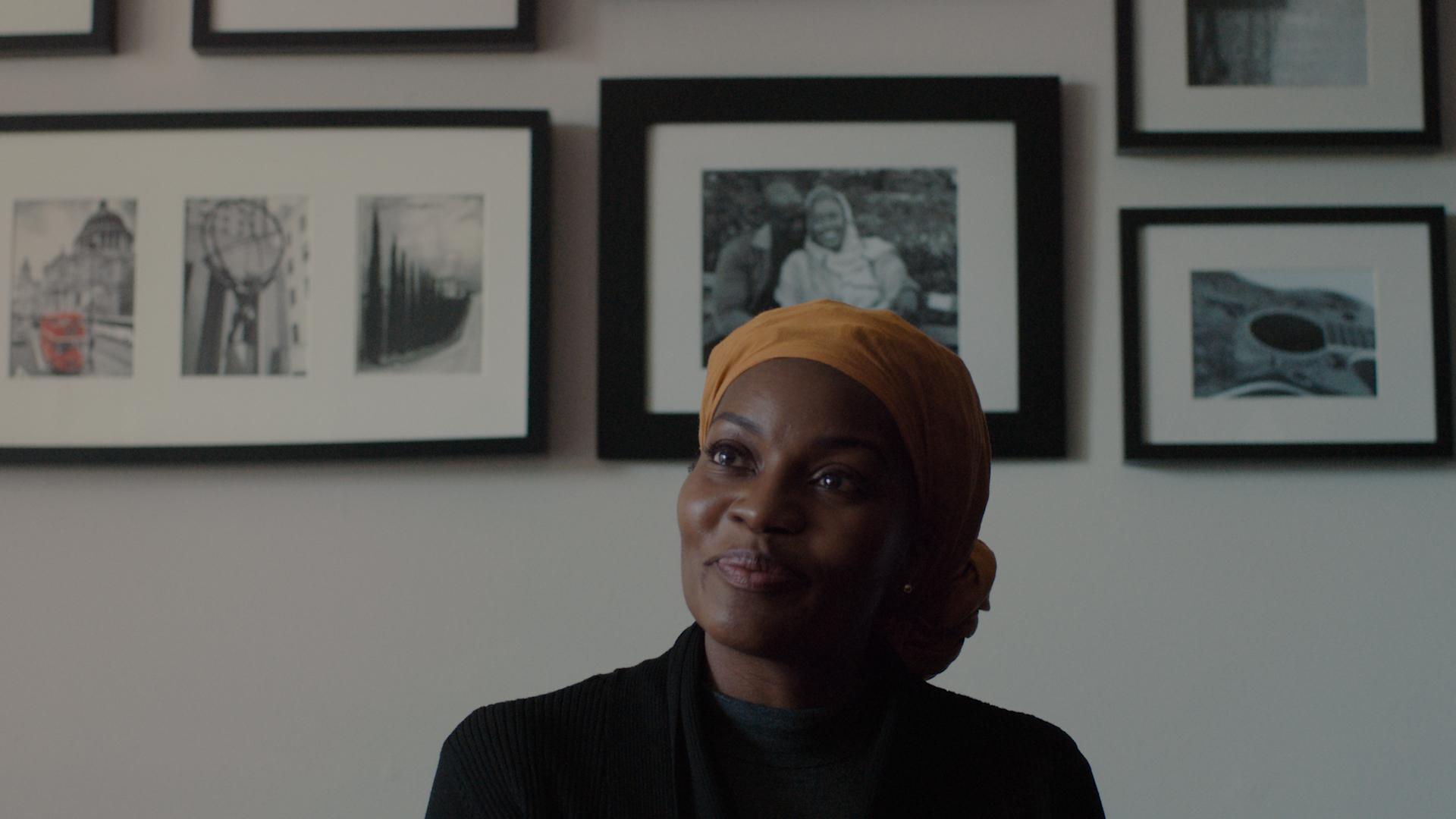
Love in Submission (Antu Yacob & Lande Yoosuf)
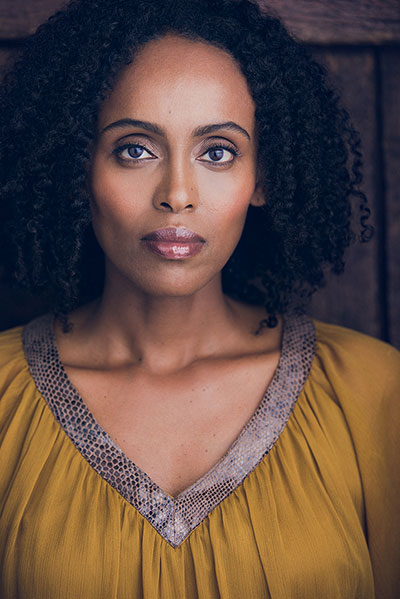 Inspired by real-life stories of families who have endured secret polygamous relationships, Love in Submission stems from a play of the same name by producer, co-writer, and lead actor Antu Yacob.
Inspired by real-life stories of families who have endured secret polygamous relationships, Love in Submission stems from a play of the same name by producer, co-writer, and lead actor Antu Yacob.
Love in Submission follows two Muslim women of different backgrounds, who meet each other for the first time when their worlds collide through a mutual third party,” explains Yacob. “The play explores the questions of spirituality and religion, and how they intersect with polygamy.”
“When we initially spoke about the piece, we shared our personal experiences and observations with polygamy in our Nigerian-American and Ethiopian communities,” adds director Lande Yoosuf. “I was inspired to visually express this story from the perspectives of women whose stories and feelings get overlooked at the expense of sustaining tradition.”
Their collaboration on this tale explores the complex identities of being Black in America.
“As an Oromo Ethiopia-born, U.S.-raised woman, I often found myself between multiple worlds and identities. As an adult, I’ve learned to embrace my complexities and committed to using the power of images and storytelling to reflect the complexities of women of the African diaspora,” says Yacob. “For years we were invisible and when we did emerge on the screen, we were one-dimensional, a side kick, a servant or as someone in the periphery. The stories I want to share as a filmmaker aim to expand the lens in which we see these women. As an actor, I spent so much time waiting for someone else to write roles that housed our glorious layers. I got tired of waiting and started writing them myself.”
Both Yacob and Yoosuf are committed to continuing this trend of self-empowerment. Over the course of the next year, they will be developing feature film projects, including a longer version of Love in Submission, which explores how the two characters from the short navigate through their lives once their secrets have been exposed. Yoosuf is also exploring a film about a Nigerian-American woman entitled Ko-Foe, and Yacob is developing a historical fiction series set in late 1800s/early 1900s Ethiopia, based on female warriors and a queen that changed the course of history.
Yet both understand that the road to creating a feature film is notoriously difficult, and that the film and television industry needs to change its methods.
“[It] needs to make more of a financial commitment to first time feature filmmakers that are not film school alumni. There is a lot of self-taught talent out there,” explains Yoosuf.
“For too long the ‘gatekeepers’ or people who give the green light to projects have had the power to state what is an important and ‘authentic’ Black story, when often their choices reflect their ignorance…” says Yacob. “Just like the myriads of white stories and characters we have grown up seeing, loving and accepting, there is just that much — if not more — diversity within the African Diaspora, our experiences and the stories we tell.”
Antu Yacob: website _ instagram _ twitter _ facebook
Lande Yoosuf: website _ instagram
Love in Submission: instagram
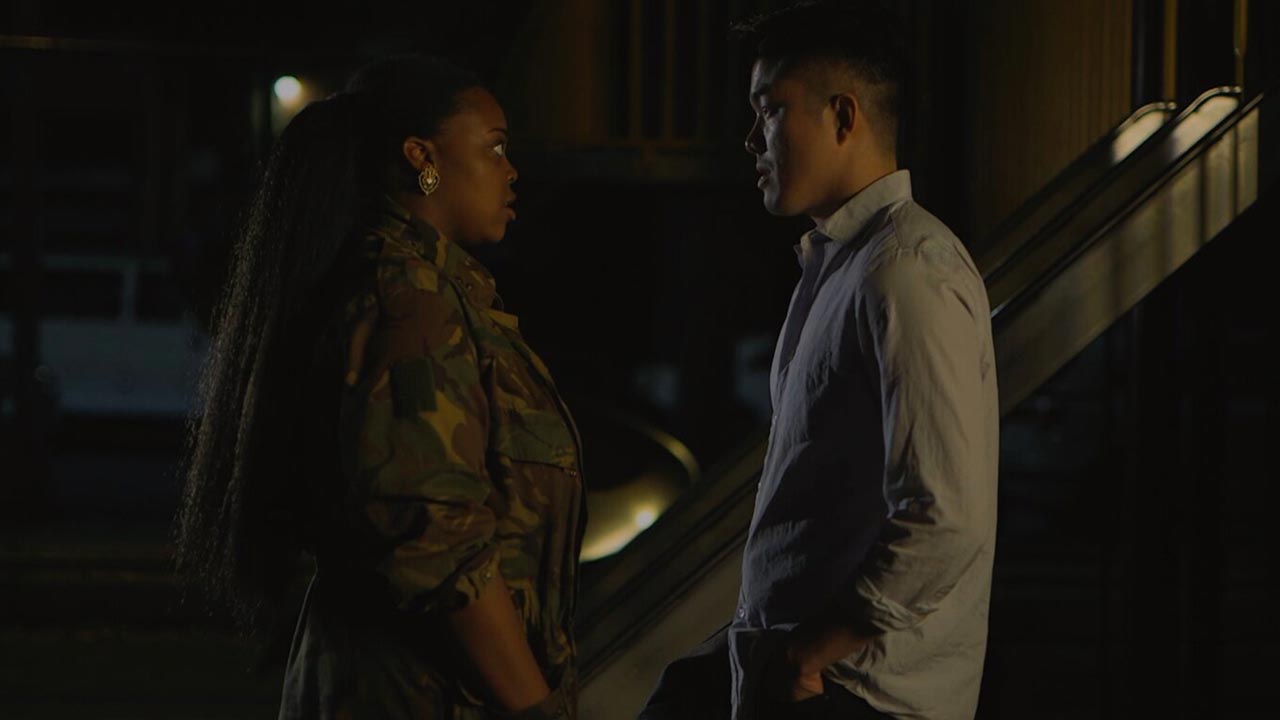
The Black Banshee (Kyla Sylvers)
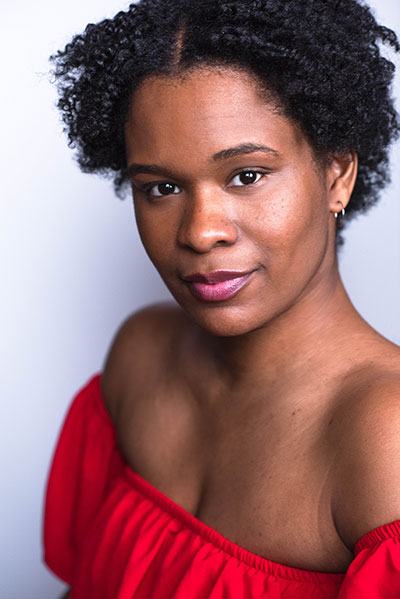 As a creator who identified greatly with supernatural genres and grew up watching plenty of sci-fi and fantasy shows, writer-director Kyla Sylvers grew tired of never seeing herself represented in such storytelling. Her short film, The Black Banshee, was inspired by Teen Wolf and its related Banshee folklore, combined with Sylvers’ own research into Black history, folklore, and her family history.
As a creator who identified greatly with supernatural genres and grew up watching plenty of sci-fi and fantasy shows, writer-director Kyla Sylvers grew tired of never seeing herself represented in such storytelling. Her short film, The Black Banshee, was inspired by Teen Wolf and its related Banshee folklore, combined with Sylvers’ own research into Black history, folklore, and her family history.
From this mix of interests, she began to ask herself, “How do I tell my personal family history and my people’s story while adding a supernatural twist?” — and hence, The Black Banshee was born.
“Initially a pilot, I wanted to make this short film to prove that the concept worked and that black people could tell unique and varied stories that are specific to what’s happening in the world while also being a compelling genre story…” says Sylvers, who also has some of the Irish heritage from which Banshee culture initially stemmed. “This story is the beginning of something much bigger, but also it’s own standalone bittersweet love letter to the complexities of black American life.”
Sylvers mentions that though Ava Duvernay and Ryan Coogler may have gotten to create A Wrinkle in Time and Black Panther, respectively, she wants more. “I want to see us make a Lord of The Rings style film series, or Game of Thrones, or The Witcher. We exist,” she states. “And, we don’t just exist in slave narratives and romantic comedies. I want to see us time traveling, sword fighting, and discovering different dimensions. And, I don’t want us to have these explorations as some subplot in white people’s stories, but through our own stories that discuss the varied Black experiences through genres that aren’t the same ones we’ve seen already.”
The stories of Black women, in particular, are something that Syvlers feels passionate about, in order to prove that experiences of people like her are about more than the tragedy. They are also about victory.
“I think that Black women matter… I want to write stories about us that show how vulnerable we are, how smart we are, and most importantly… how multi-faceted we are…” she says. “It’s not just about having a hard life and wanting to talk about that. It’s about taking what I’ve gained from my hard life, taking what I’ve learned about the complex lives of the people who came before me and of the lives of the people I’ve observed, and making something compelling, different, and out of the box.”
Slyvers is currently pitching a pilot version of this short film, also entitled The Black Banshee, as well as a sci-fi fantasy series called Egatu, which takes place on a different planet. Other fantastical adventures she is exploring include a feature called The Heist and a dystopian sci-fi podcast currently in development, called News of the World.
Kyla Sylvers: instagram _ twitter _ facebook
Melanin and Magic Productions: instagram
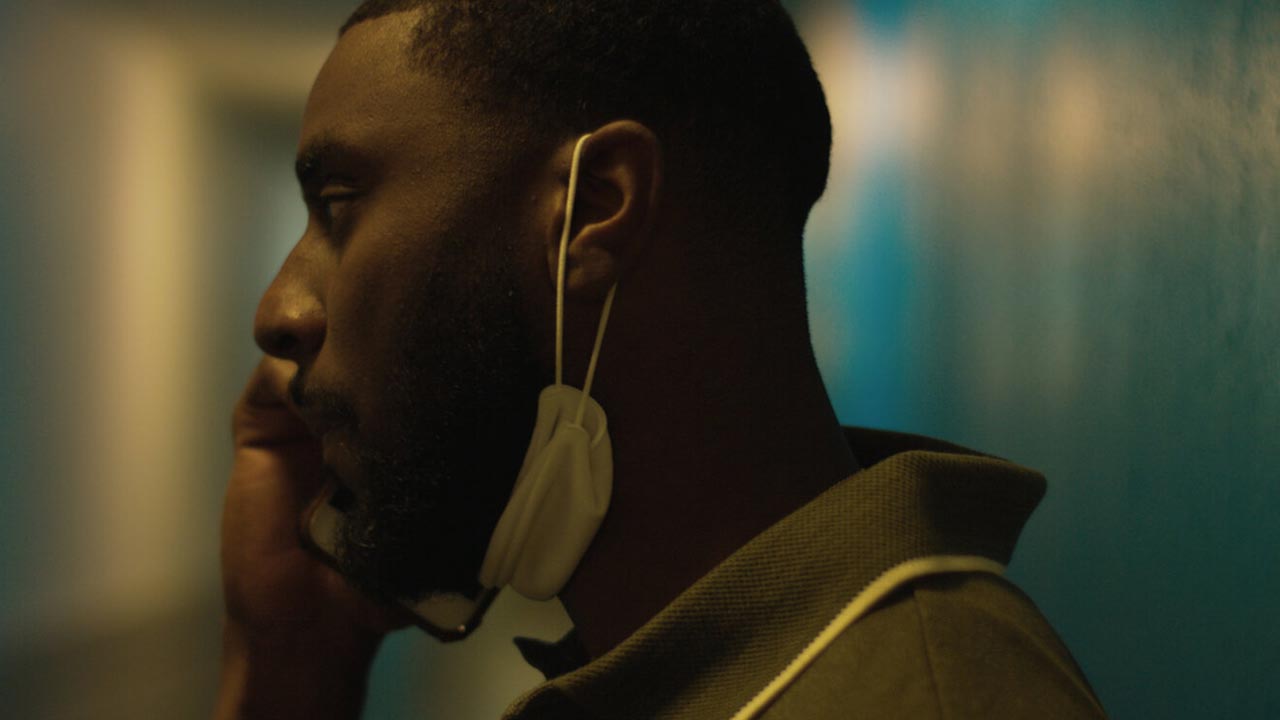
The Pandemic Chronicles (Ya’Ke Smith)
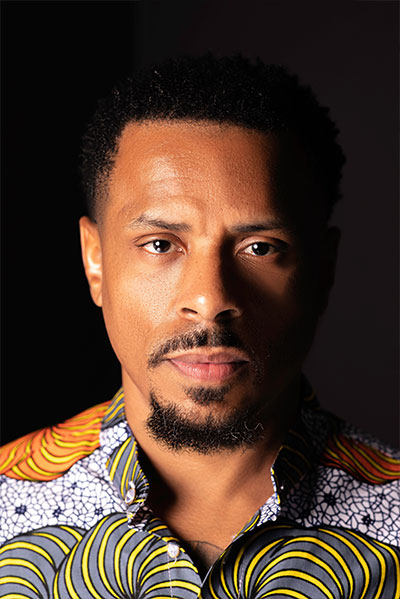 Ya’Ke Smith’s series, The Pandemic Chronicles, is a series of short interpersonal vignettes that serve as a narrative commentary on how human beings individually and collectively navigate the COVID-19 pandemic.
Ya’Ke Smith’s series, The Pandemic Chronicles, is a series of short interpersonal vignettes that serve as a narrative commentary on how human beings individually and collectively navigate the COVID-19 pandemic.
“I wanted to first find a way to honor the wide spectrum of feelings that we’re all feeling, and then shine a light on the little moments of joy that we’ve all had to find in order to pull through,” Smith explains.
Indeed, through The Pandemic Chronicles began simply as a creative outlet during tumultuous times, it soon evolved into “a love letter to the world,” which Smith hopes will bring “solace, peace, and healing.” Each of the films evolved collaboratively with the performers and creative teams, taking time to honor where each person was at their respective points in time.
“Every aspect of the process was centered around their acting abilities, the production resources they had at their disposal, their comfortability with intimacy, and their unique perspectives on the subject matter,” says Smith. “For me, this is the best way to approach filmmaking.”
“Film for me has never been merely about entertainment, but has always been a mechanism that I’ve used to give voice to individuals and communities whose voices have been stolen from them, and to make visible those who have been deemed invisible… in order to rewrite the narrative, one must lead with empathy and understanding,” Smith explains. “Growing up in the hood myself, I’ve always felt that our images were (and still are to a certain extent) abused and misused, almost turned on us as weapons of mass destruction by people who hadn’t spent any time asking the right questions or getting to know us on an intimate level.”
In addition to being a prolific filmmaker, Smith was recently named the Associate Dean for Diversity, Equity, and Inclusion at Moody College in Austin, and it is safe that such conversations have long been on his mind. He asserts that the industry still has a long way to go in terms of equity and inclusivity.
“I often find that BIPOC voices are only engaged with when it’s time to meet a quota, or in a ‘diversity’ lab of sorts, but the industry has to move beyond this model…” he states. “We can’t wait on the sidelines for our stories to be heard, but we have to come together, support each other, and find our own avenues of distribution that will allow us to get the work out to the largest possible audience. Avenues like ‘Our Right to Gaze’ are key to creating that infrastructure.”
“Grassroots distribution like this is the best way to ensure that unique voices, perspectives and points of views are championed. This is how we collectively change the model and further the conversation!” he adds.
Smith is currently developing two feature films, the first of which he plans to produce in Spring 2022. He already has one other feature under his belt.
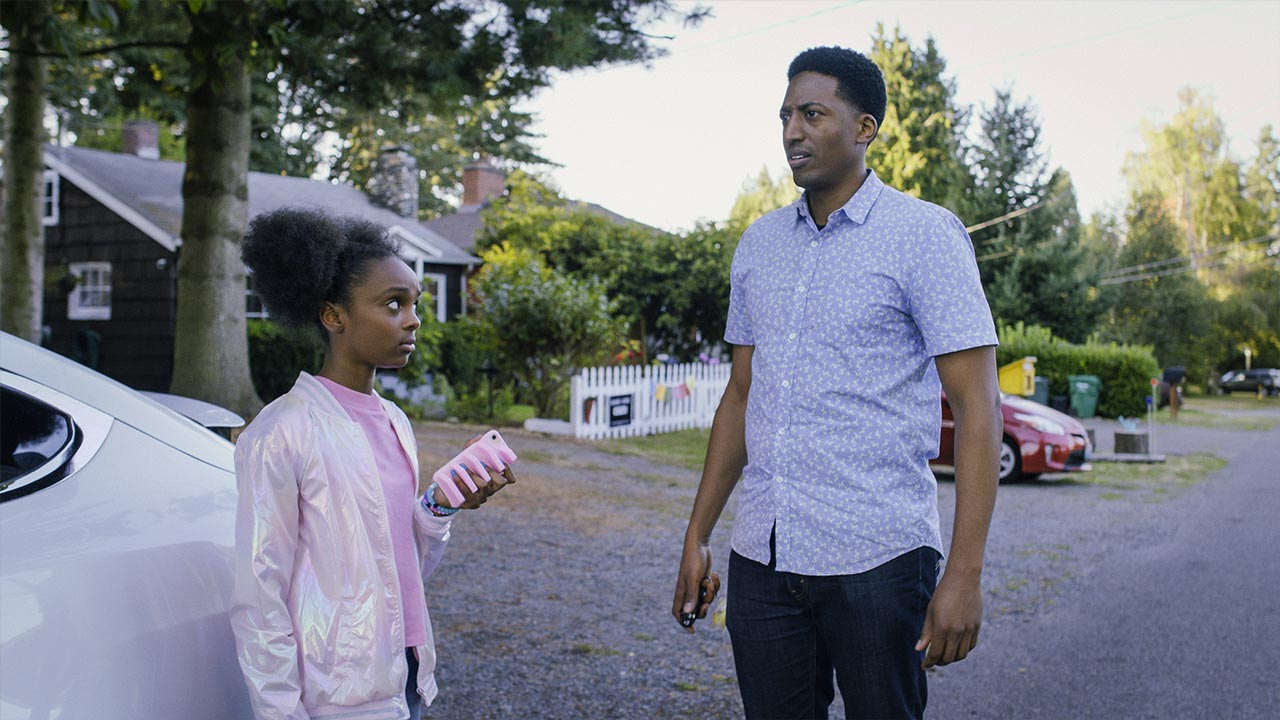
Zora Bikangaga (Auntie Zariyah)
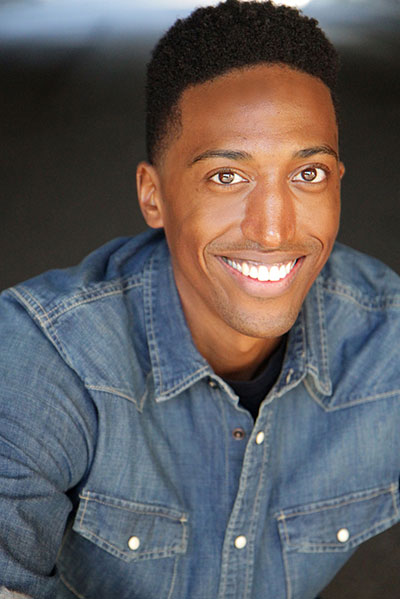 Starring both writer-director Zora Bikangaga and a cheeky tween as its lead, Auntie Zariyah follows a stand-up comedian who encounters an auntie he has never met before — only to discover that she is a 12-year-old social media influencer with her own apartment.
Starring both writer-director Zora Bikangaga and a cheeky tween as its lead, Auntie Zariyah follows a stand-up comedian who encounters an auntie he has never met before — only to discover that she is a 12-year-old social media influencer with her own apartment.
“The story was inspired by the actress who plays Auntie Zariyah, for which the film is eponymously named,” shares Bikangaga. “A fellow filmmaker friend, Bryan Tucker, worked with Zariyah Quiroz on a local promo video and was struck by how precociously talented she was at 11-years-old.”
Because both Bikangaga and Quiroz share similar East African ancestry, he decided to explore a project that might imagine them as relatives. Any doubts he may have had about the semi-silly idea quickly changed when he saw a video of her. What has emerged is a warm and unlikely story of family.
“I was immediately taken by how old of a soul she was at such a young age. Honestly, she was giving me auntie vibes…” he says. “It also unexpectedly became an ode to all of the aunties who were such an integral part of my life and who made me the person I am today. Aunties are a crucial part of upbringing in Black culture, and this film is a celebration of that.”
In addition to his own projects, Bikangaga recently worked in the writer’s room for the musical comedy, Zoey’s Extraordinary Playlist, and is also in development on an episodic version of a story he told on This American Life, entitled Uganda Be Kidding Me. Having worked throughout the industry, Bikangaga has a holistic look on his perspective of what needs to change to make a more welcoming environment for BIPOC creatives.
“As we push for more representation in front of the camera, I want to see it in all aspects of the process…” he suggests. “These are the areas in which BIPOC creatives and producers still have little access. They are important and have real impact. It’s very easy to fool the public through surface-level diversity initiatives, but true inclusion means disrupting the power structures so that media is no longer used to reinforce racist systems.”
Bikangaga also intends to adapt Auntie Zariyah into a TV series, to celebrate its intergenerational appeal and focus on Black stories which are uplifting, rather than simply traumatic.
“We all want to see our humanity reflected in the stories we share, and it’s been my motivation from the very beginning to change the way someone like me is seen in television and film…” he concludes. “Being a storyteller gives one a great deal of agency to illustrate what we see in people and in humanity. It’s a privilege.”
Our Right to Gaze: Black Film Identities Series Trailer
Our Right to Gaze: Video Q&A
Ω

